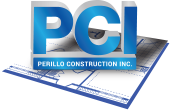When starting your new business whether you provide the funding, request a business loan, or seek out investors, you will need to have a realistic projection of your costs for startup. You, your bank, or your investors should view these figures with care, as they are key in fully developing your business plan. In making your plan, there are several factors to consider.
A Credible Figure
Your credible figure for starting your business is dependent on the type of startup. For example, tech startups which often need funding in the $1.3 million range require considerably more funding than home-based sole proprietorships which can get started successfully for $5,000. Whatever your entrepreneurial plan, your startup funding figures should line up with marketplace averages.
The Business Structure
The structure of your business from legal to organizational has a huge impact on your projected startup costs. There will be legal fees involved as you determine the legal identity of your business. And while you may not need an attorney if you are forming a sole proprietorship, you’ll definitely need one if you’re are creating a partnership, limited liability corporation, C Corporation, or S Corporation. This is particularly true if your business is in technology where fees (legal structuring, intellectual property protection, etc.) can rise quickly to $15,000 or more.
The Human Resources
The cost of hiring, training, and compensating employees means additional expenses not limited to salaries but including recruiting costs, training costs, benefit packages, and payroll taxes. Plus, you’ll need to be paid as well. When seeking funding as an entrepreneur, you should always include your salary as the business owner in order to present a credible, realistic projection of your start-up costs. If you don’t include your salary, lenders and investors will see this as a red flag indicating your company’s lack of survival skills.
The Operational Costs
In addition to the legal fees and the human resources costs, there are a number of operational costs for an entrepreneur starting a business to consider including, but not limited to: business licenses, marketing, rent or lease (plus buildout costs), furnishings and equipment, inventory, and insurance. Often underestimated, insurance coverage, depending on your new business, can mean general liability, as well as property, workers’ compensation (or professional liability), and commercial vehicle insurance. In addition, if your business is product sales, by purchasing small amounts of inventory you can decrease costs upfront as well as gauge how quickly your inventory sells. In like manner, if you are developing products, added costs will include research and development phases along with subsequent design and testing phases.
Count the Cost of Business Loans
Your start-up cost projections are crucial in developing your business plan and ensuring sufficient funds to get your company up and running for your first years in business. The precaution here is to avoid being overfunded, which could result in repayment plans that are difficult to manage and could ultimately result in failure.
When raising investment capital, entrepreneurs should be wary of overspending which often comes when cash on hand is abundant making the financial risks seem small. In addition, those investors, all of whom have a financial stake in your business, will expect to heard when giving their opinions about how your business should be run. A better option is to learn frugality on the front end, being clever and efficient with funds, and ultimately creating lasting value and success.
To help you keep operational costs in check, call on the professionals at Perillo Construction for build-out projects that are always high quality, as well as on budget and on time.

